‘How will we recover? What will we have left?’ The battle for survival inside Britain’s intensive care units
On wards filled with the sickest patients, NHS workers are being stretched to their limits by the relentless rise of Covid-19, reports Shaun Lintern

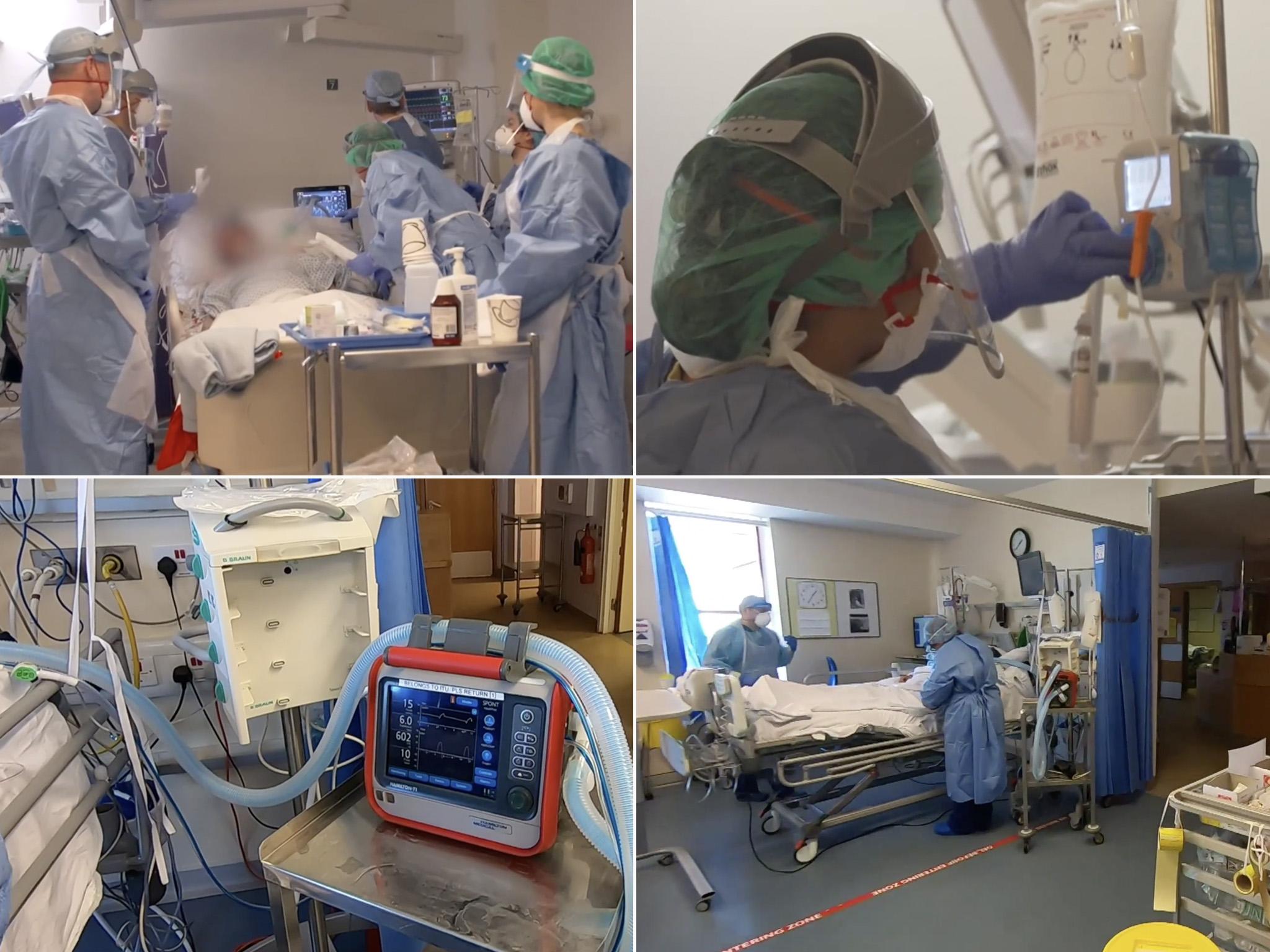
Your support helps us to tell the story
From reproductive rights to climate change to Big Tech, The Independent is on the ground when the story is developing. Whether it's investigating the financials of Elon Musk's pro-Trump PAC or producing our latest documentary, 'The A Word', which shines a light on the American women fighting for reproductive rights, we know how important it is to parse out the facts from the messaging.
At such a critical moment in US history, we need reporters on the ground. Your donation allows us to keep sending journalists to speak to both sides of the story.
The Independent is trusted by Americans across the entire political spectrum. And unlike many other quality news outlets, we choose not to lock Americans out of our reporting and analysis with paywalls. We believe quality journalism should be available to everyone, paid for by those who can afford it.
Your support makes all the difference.Across Britain, intensive care nurses and doctors are being pushed to their limits as they try to save lives from coronavirus. During 12-hour shifts in sweltering conditions, they are faced with technical and emotional challenges that many have never faced as they tackle a virus that has swept across the globe in a matter of days, threatening to kill tens of thousands in the UK.
Britain has yet to even hit the peak of infections, but intensive care specialists are already asking how long they can keep working relentlessly.
“We are trained for and used to dealing with difficult and emotional scenarios, but this is like a major incident that never ends,” says critical care nurse Karin Gerber.
As an advanced nurse practitioner in critical care outreach, the 47-year-old sees patients in hospital who are getting sicker and may need to be admitted to intensive care. She says she has never seen anything “at this intensity”.
The Royal London Hospital is at the forefront of the capital’s fight against the virus and has created more than 200 extra beds at its Whitechapel site in east London. They are filled with Covid-19 patients.
Simon Richards, senior charge nurse at the Royal London’s critical care unit, tells The Independent: “In 20 years as a nurse this situation is by far the worst I have ever seen and totally unexpected, but the team spirit that people have shown has been amazing.
“It’s extremely difficult, we are working so hard. The whole team is being pushed to their limit and you do wonder how long can this be sustained for? I wish we could see light at the end of the tunnel.”
Dr Andrew Williams, a consultant anaesthetist drafted into a makeshift ICU at Whipps Cross Hospital in London, says the workload is “relentless”, adding: “Normally on nights and weekends things quieten down in hospitals. The problem with coronavirus is this is just relentless, coming day and night. The workload is just constant, there is no let-up.”
Williams, along with many of his colleagues, is now back working regular nightshifts and weekends.
“We don’t know how this will end. How are we going to get out of this? We won’t have the staff, that’s the anxiety. It is unlike anything we have seen before,” he says.
NHS data published this week gives a glimpse into this demand. More than 3,800 patients have been admitted to critical care after testing positive with coronavirus by the 9 April, with 871 deaths reported. For context, in January the NHS had just 4,100 intensive care beds in total, showing why it has been crucial for the NHS to rapidly expand its capacity.
In just a few weeks, the health service has created 33,000 extra beds, with hospitals cancelling routine appointments and surgeries, while they have also created temporary critical care units. On top of this, the government has launched an appeal for 10,000 ventilators from manufacturers – but beds and ventilators are only one part of the equation.
Staffing those beds and providing the care patients need is vital and that can only be done by nurses, doctors, care assistants and the support team around them including cleaners and porters.
Normally in critical care units, nurses look after just one patient, sometimes two. Currently at The Royal London, because of the demands from Covid-19 patients, their ratios have been stretched to two nurses for every six patients – with other staff supporting them.
Richards says: “The Royal London has always been an extremely challenging area to work in physically and mentally. I always say if you can work here you can work anywhere, but the current situation is bewildering. The work is very demanding on all of us. The demand increased quickly. In the beginning, we had one suspected patient in a side room, I went off for two or three days and when I came back it was just one after the other. It very quickly escalated.”
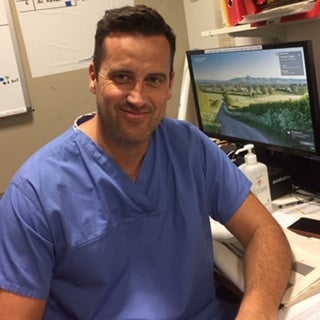
As a charge nurse, the 47-year-old’s job is to oversee the teams at the bed space and make sure they have what they need.
He says the whole unit has been transformed with staff forced to wear full personal protective equipment (PPE) including masks, gloves, shields and aprons to stop transmission of the virus, and limits placed on where they can go.
Even simple tasks are now a challenge as staff need to rely on “runners” who are outside in corridors to fetch items they need to carry out tests.
Richards, 47, who qualified in 1996, says wearing full PPE was hard, causing headaches and fatigue as staff become dehydrated: “People have become very exhausted, mentally and physically.” He says staff have been tearful and anxious but were able to use special rooms that have been set aside to allow them to have a “timeout”.
He adds: “When they come to us the patients are extremely sick and staffing levels being stretched as far as possible. It is emergency medicine.’”
As well as suffering lung damage, Covid-19 patients often suffer multi-organ failure and need kidney dialysis, he says.
“Sadly lots of patients do succumb to this and in intensive care, we don’t get to hear about the good stories and the positive results. We see the worst of it, all the time. It doesn’t pick and choose. It can affect anyone. It’s in the backs of all our minds.”
Williams says the fear of coronavirus has forced him and his wife Charlotte, who has asthma, to sleep apart for fear she might catch the virus.
“We have seen a huge amount of staff sickness. Lots of my colleagues have been ill and tested positive. Out of a team of 16 consultants, three have tested positive with one likely to be. That is what is really worrying people.”
He described current working patterns as “brutal” but praised staff for not complaining and everyone pitching in to play their part against a serious illness.
“It’s not like any disease we have seen before. The patients are really sick.
“You feel like you take one step forwards and two steps back. We have people in their twenties in intensive care. A lot of patients are dying and that is difficult to deal with.
“We can only do our best. A lot of people are going to be ill and die but we can only do our best. That is all anyone can ask.”
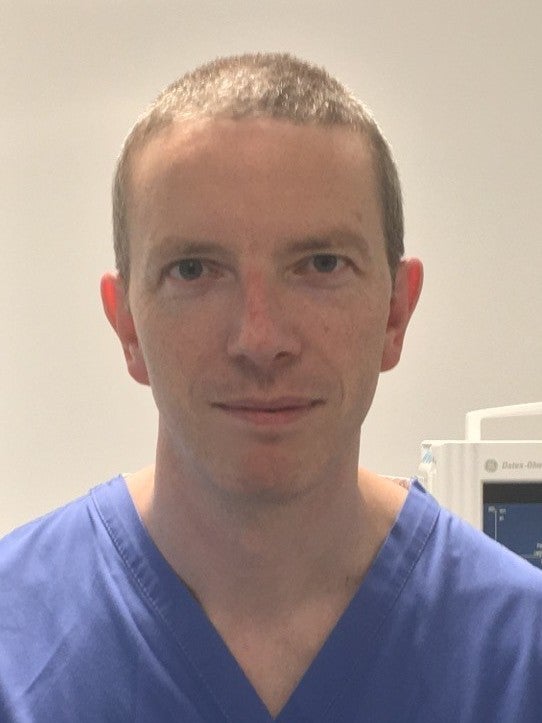
On one recent nightshift the work was so intense he could only take his facemask off once for 15 minutes in a 12-hour shift.
A particular problem he has faced is managing anaesthetic machines that now need to be used as long-term ventilators. Unlike traditional ventilators used in intensive care units, anaesthetic machines are designed for short-term use during surgery and use soda lime to remove carbon dioxide. This has to be checked and replaced regularly.
“They are not designed to ventilate someone for days. They have to be checked every 24 hours, but the patients are very sick and can’t be off the ventilator,” says Williams. “They need to be constantly monitored and fiddled with and the ITU nurses are not familiar with them, so an anaesthetist has to be there all the time.”
On one occasion he has had to switch patients rapidly between two machines in order to carry out checks. “It is adding a layer of complexity.”
Intensive care nurse Samantha Margerison, 57, says people need to know how bad it is for some patients in intensive care: “The ventilators are the only thing keeping them breathing. I have not met a nurse or a doctor who has experienced anything like coronavirus before.”
She says patients who were awake are scared: “They have masks strapped to their face, intravenous lines in their neck, tubes in their mouth and a ventilator breathing for them. It’s not nice and they are surrounded by space aliens wearing face shields and masks and they’re cut off from their families.
“A part of intensive care is to support patients emotionally and if they are conscious you talk to them and even if they are unconscious, we still talk to them. But simple things like touch, because we’re wearing three layers of gloves, are absent now.”
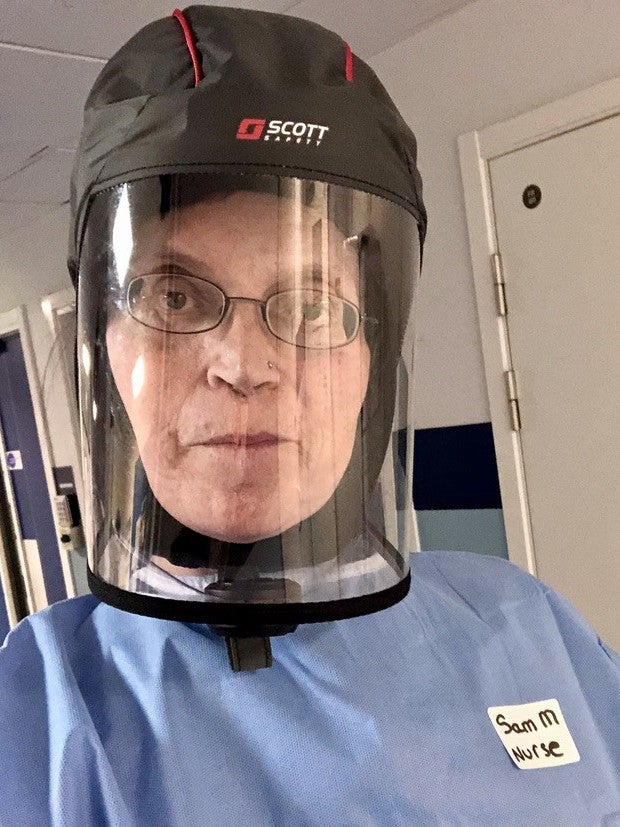
Margerison, who retrained as a nurse in 2015 at the age of 53, after years working in IT, describes what it is like working at the bedside of a Covid-19 patient: “It can be exhausting.
“We can’t take water in with us so the process of getting a drink or going to the loo means stripping down and putting it all back on again, so it doesn’t happen that often.
“ITU nurses are highly skilled but what we do is intensely crude in many ways,” she says.
For nurses, the focus is to try and emulate the body’s natural processes and support the patients, but, Margerison adds, there is little they can do against the virus: “It makes you feel quite helpless and it takes a massive toll.”
She says the fact so many nurses and doctors have become sick is a major worry: “It totally dominates my thoughts. If you do one thing wrong the little sucker may get you.”
She admits being fearful about going to work but once there the anxiety passes: “I know I’m not alone, there is a team.”
Gerber, also a board member at the British Association of Critical Care nurses, adds: “It is emotional and it’s hard for the patients when their families are not there. They are really scared when they have masks on their face, they can’t hear you or see your face.”
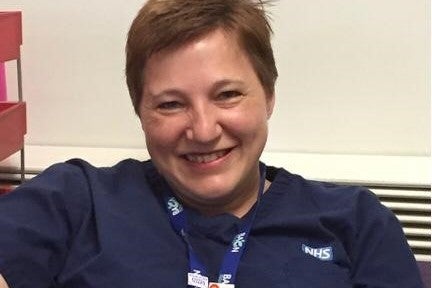
She says staff and patients are going to need long-term support when the worst of the epidemic has passed.
The lack of families being able to visit is described by many staff as heartbreaking and tragic and has not only impacted on the patients and families but on the staff too.
One intensive care doctor from the north of England, who asked to remain anonymous, says it was hard to talk to families and update them over the phone and hear children in the background. He describes having to hold a phone up for the family to see one patient “so the children could say goodnight to daddy”.
He adds: “I feel powerless. These patients are like nothing else I have treated. All the time they are so delicate, my normal intensive care instincts don’t apply.”
He says the strain is already beginning to show on some staff, adding: “I think about the patients all the time. I don’t know if any of us have had a good night’s sleep in a month. How will we recover, what will we have left?”
Behind the nurses and doctors in intensive care there are teams of support staff helping to ensure the units are clean, food is delivered, and patients are safely transferred around the hospital when needed. They are often overlooked.
Cleaners and porters are essential to the operations of many intensive care units and they are forced to work in similar conditions to the clinical staff wearing full protective equipment.
Diane Sullivan is part of the cleaning team at Newham Hospital in London. She says: “It is very scary for staff but we are coping well. Patients need to have a clean environment to get better and we are working extra long shifts at the moment. We have to take care of our patients.”
There are over 140 cleaners at the hospital with four dedicated to intensive care.
Alongside them are the porters who move patients between wards. Mel Crawford helps run the portering team at Newham and has transferred intensive care patients with coronavirus.
She admits it was worrying for staff who have not experienced anything like this before.
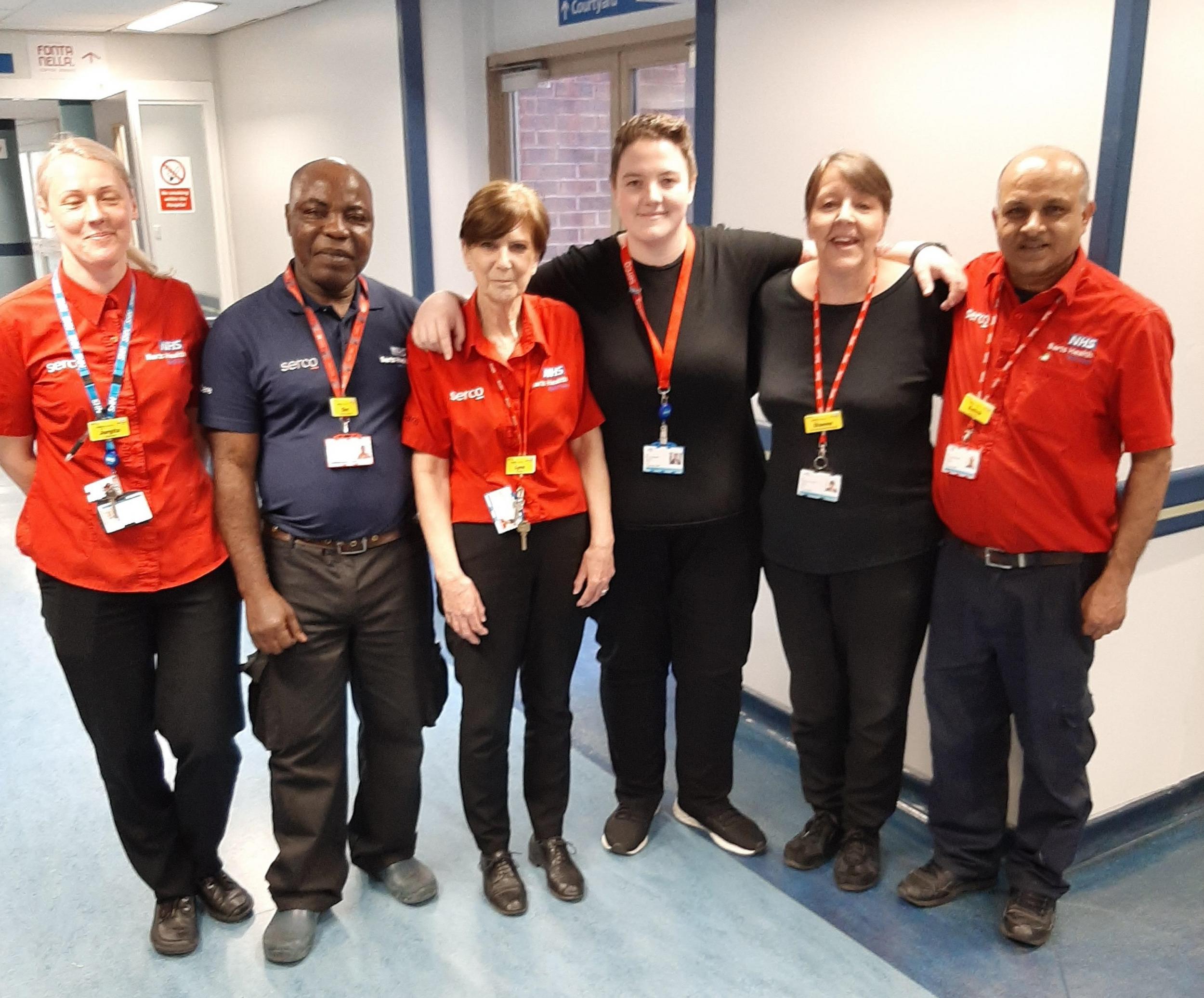
“We are working day in and day out. There has been a big increase in demand and some of the things we are having to do at the moment are not very pleasant.
“You don’t know when you step through the ward doors what you are coming in to do. But the team never complain and always come to work smiling, I am very proud of them.”
All of the staff spoken to by The Independent repeated the government advice to stay home and help them to save lives.
The epidemic is expected to reach its peak within the coming week and intensive care units expect to see Covid-19 patients needing their specialist support of many weeks and months ahead. For the workers on Britain’s coronavirus front line, already stretched to the limit, there is no end in sight.
Join our commenting forum
Join thought-provoking conversations, follow other Independent readers and see their replies
Comments